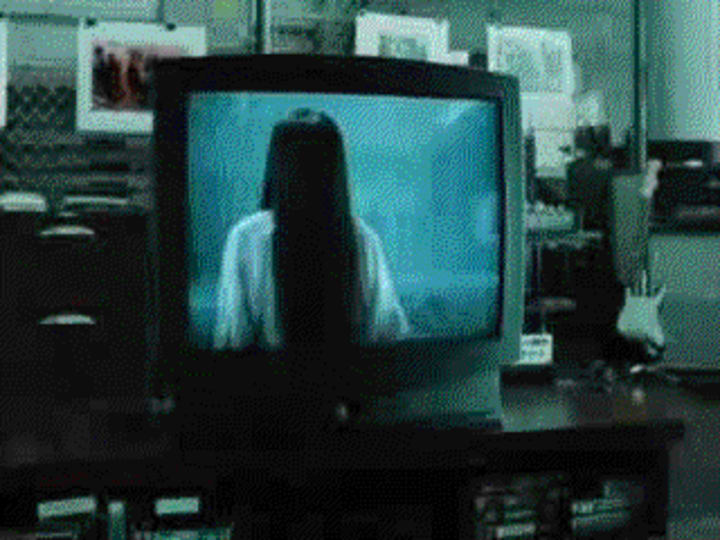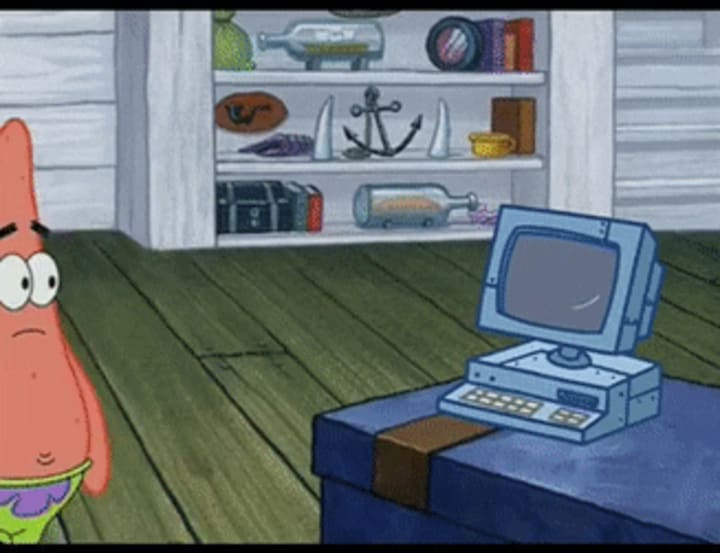The Ring (2002) Movie Review
Burning Ring of Fiery Questions

After watching the movie The Ring (2002), I noticed the first dialogue that we're treated with. It is a girl saying that she "hates television". This sets up the theme for the movie. The fear of Western Technology. Now I say Western, because Japanese Horror stems from European Horror.

Prior to the colonization of European rule, the Asian culture had their own folklore that helped them with everyday lives. Even in their own religion.
Once the natives were introduced to an advancement in technology, the fear of how to harness it seeped in, and created various monsters and superstitions that later became a staple in the modern horror genre for cinema.
Out of the numerous horror movies that have these influences, I have chosen The Ring (2002).

For this film, I'm going to touch on certain topics, and try to answer or interpret the meanings behind them the best way I can.
Here are the topics:
- What are the themes of this movie?
- How is this movie applicable to 2020 and the Covid Pandemic?
- As an audience, what does the movie want us to fear?
- Is this the type of movie that can be watched over and over again?
- If given the chance to be in the Director's Chair, what would be done to make this movie better?
- Did it need a sequel?
So without further ado, let's get this started.
1- What Are the Themes of This movie?
Believe it or not, this movie contains a lot of themes. It's a satire on media censorship, hints at the topic of abortion, the fear of commitment in starting a family, the fear of Western technology, and a VHS version of the chain letter that kills you if you don't forward it to random people.
Let's start with censorship. The mcGuffin of this story is the blank VHS tape, but not just any tape, this cassette tape contains disturbing imagery that worries the mind. We can liken this to that phrase that The Griffins say at the intro of each episode of The Family Guy.
"It seems today that all you see is violence in movies and sex on T.V."
The film does touch on that. Take away the scary scenes and replace it with gratuitous violence, and unnecessary in your face sex scenes; and you get a dormant zombie-like couch potato who is addicted to the filth on T.V.
The abortion theme is hinted throughout. We see that Rachel has a son, but we don't know who the father is until much later. The fact that Rachel and her son are together, shows that Rachel made the choice not to abort her child.
On the other hand we see that Samara's parents adopted her, because they couldn't physically have children. Over time, Samara began to be a disturbance of the peace in the community. She was like an anti-King Midas; everything she touched, turned to evil.
Samara's adopted mother decided to do what she thought was the next best thing, kill her daughter. AKA abort the child.
The fear of commitment in making a family is another theme, it's very subtle, but it's there. I mentioned earlier that Rachel and Noah had a child, but never tied the knot. Samara's adopted parents were married. He liked her, so he put a 'ring' on her, but sadly they couldn't physically have children. I mean why else would they see the ring at the end? Granted the lid covering the well was the last thing that Samara saw before she died, but the similarities are uncanny.

The fear of Western technology. In June 4, 1977 the VHS was introduced to America by Japan. I find this interesting because The Ring was an American remake of the Japanese movie Ringu. Another thing that's interesting is that Samara was born in 1970. It would have been even more interesting if she died on her 7th birthday, but alas the internet has said that she died when she was merely 10 years of age. Regardless, she was born at a time where VHS was in its infancy.
Going back to the fear of Western technology, if you notice, the majority of Japanese horror movies have a fear of Western technology. Here are some examples;
- Shutter (2008)= Fear of pictures
- Pulse (2006)= Fear of the internet
- The Ring (2002)= Fear of VHS's
- One Missed Call (2008)= Fear of phone calls
The list goes on... They even have fear of inanimate objects like umbrellas coming to life. The point is that the reason this type of fear exists is because it's foreign to the consumer. They're afraid of what they don't understand. When that happens, it becomes a good horror movie.

After watching this film, it is basically a neverending chain letter in VHS from. Once you receive the tape, you have to copy and forward it to random people so that nothing bad happens to you. This type of chain mail has been around for centuries, but it wasn't until the 1990s that it became popularized to use it for forwarding messages in hopes that a bad omen wouldn't come around.
Those were the themes, now let's move on to the next one.
2- How is This Movie Applicable to 2020 and the Covid Pandemic?
I mentioned before that this movie was basically a neverending chain letter in VHS from. One could liken the VHS to the pandemic. Once contacted, you have 7 days to live. The only difference is that you have to wait an extra week in quarantine to know if you're safe or not with the virus.
3- As an Audience, What Does the Movie Want us to fear?
I mentioned this before, and I think the film mostly wants us to fear Western technology.
4- Is This the Type of Movie That Can Be Watched Over and Over Again?
Not really. It's more of something you need to experience for the first time with a bunch of friends in a theatre. It's not like a Nolan movie, where it's designed to be watched over and over again, or even analyzed thoroughly. Granted that's exactly what I'm doing with this article.
5- Did It Need a Sequel?
Plain and simple. No it didn't. The American remake alone was enough to create a cult following.
6- If Given the Chance to Be in the Director's Chair, What Would Be Done to Make This Movie Better?
I would mostly leave it as is, however if I were to expand the franchise, I would explore some questions that I have about how Samara taps into social media.
For example, here are some questions I have regarding Samara being in the world today with modern technology:
Q: What if you watch The Ring on your phone? Would that change the ratio of Samara as she ventures out the small screen? Would you just get a hand reaching out of the small phone screen trying to strangle you?
A: I honestly don't know.
Would the size of the screen hinder her attempts in trying to kill you on the 7th day?
A: Just don't get a large flat screen.
Q: What if you watched the movie in a theatre?
Will we get a giant sized Samara?
A: Same answer, just avoid large screens.
Q: What if you travel to the other side of the world, where you might gain or lose a day? Will that lengthen or shorten your lifespan if you travel?
A: It would probably lengthen or shorten your chances of living, depending on your means of transportation.
Q: What if you watched The Ring, and one of the 7 days is on daylight savings time?
A: You would either lose or gain an hour of life before Samara kills you.
Did you like these theories? Let me know what you think!
Also, here is the link to the episode of my podcast on the same subject:
https://anchor.fm/rand-b-einfeldt/episodes/S--2-Episode-4--The-Ring-2002-Movie-Review-ekd2ku
About the Creator
Rand Einfeldt
I'm an inspiring story teller! When it comes to movies, books, music, you name it! I want to write about it, and give my own opinion on how they effect the human society that is constantly absorbed in nostalgic pop-culture!






Comments
There are no comments for this story
Be the first to respond and start the conversation.